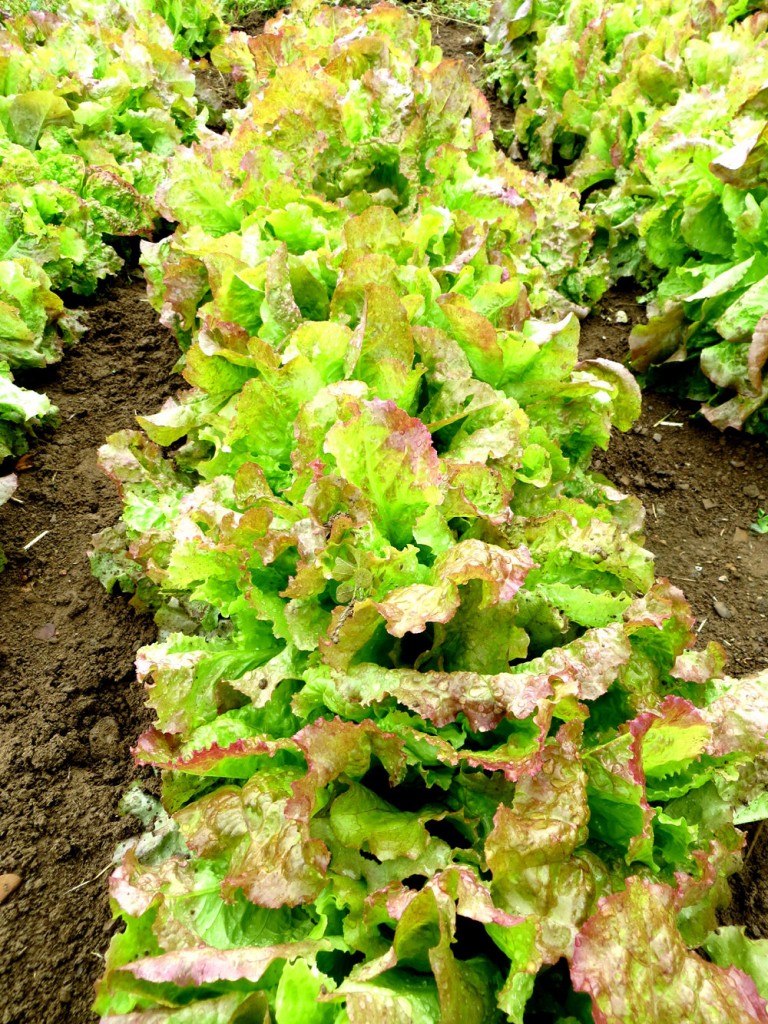In this second installment of Why farming changed the way I eat, I’d like to share the ways farming tuned me into the natural cycle of seasons, localized my eating, and terminated my food waste.
Farming forces me to work with the seasons
Before I farmed my only acknowledgment of season’s change was shifting from short to long sleeves. My work at the office was consistent year-round.
Farming forces me to work with the seasons. After last year’s busy growing season, I was ready to enjoy the prosperity of a full cellar and woodstove. The first few weeks of winter on the farm were very peaceful. But now it’s February and I have farmhouse-fever.
I manage my anxiety by shopping seed catalogs, tending my livestock, and organizing my tax receipts. I keep in mind that spring is just around the corner, and with it comes demanding baby animals, and a heavy planting and weeding schedule. Summer will quickly fade to fall, and before you know it I’ll be back where I began — refreshed and ready to start again.
Farming forces me to eat in-season
Before I farmed I insisted on making Thanksgiving green bean casserole with fresh green beans. I wasn’t completely clueless concerning food seasonality, but I had no idea how much agricultural man-power, infrastructure and logistics it took to bring me fresh green beans in November. I, like average consumers, expected a colorful, well-stocked grocery produce section year-round.
I drove up demand for out-of-season, exotic fruits and vegetables that were not sustainably produced within a day’s drive of the store.
Farming forces me to eat in-season for two reasons: First, I know what it takes to stock grocery shelves with fresh green beans out-of-season. The cost to the farmer and environment is too much for me to enjoy that Thanksgiving casserole. Second, my farm produces abundance of crisp fresh asparagus, then cucumbers and corn, followed by tomatoes, peppers and finally sweet potatoes. I would be a fool not to eat the produce fresh in the order it is offered.
Grocery shoppers will discover eating in-season produce is a best practice for all because it is more nutritious, affordable and earth friendly than importing out-of-season fruits and veggies.
Giving up grapefruit
As a farmer, I am an obvious advocate of local food. Back when I lived in Texas, I began every day eating a Rio Star Grapefruit. Leaving Texas meant leaving grapefruit in order to practice what I preach.
The good news is that living and farming in Southern Ohio means that I can take my pick from tons of delicious fruit varieties to replace grapefruit in my daily diet. The climate here is particularly friendly for apples, pears and plums. At Dickie Bird Farm we have four varieties of young apple trees, two kinds of pear, plum and plumcot. Our farming neighbors operate a fantastic pick-your-own berry farm, which we enjoy regularly during the season.
Local eaters know that eating food grown within their region is good for local farmers, the local economy and building a strong local foodshed.
Food waste
“I buy bulk fruit at Costco. It’s rare my wife and I finish half before it goes bad, but it’s still cheaper than buying apiece at the grocery store,” a friend told me.
Typical American shoppers have a huge inventory of affordable food to choose from, making ‘a good deal’ on groceries a higher priority than avoiding spoilage.
Farming opened my eyes to the problem of food waste. After starting the seed, transplanting the seedling, growing the plant, weeding, harvesting, carefully cleaning and bringing food to market, the food becomes precious. I spend many late nights after-market canning leftover tomatoes and preserving peppers because wasting my priceless produce is nonsense.
In my neck of the woods I am known as a scavenger. Friends call on me to make use of their excess apples. Neighbors drop off truckloads of pears. I use their delicious fruit overages to make value added products. Last year a friend brought me boxes of gourds, “If nothing else, I figured you’d compost them,” she said. And that’s exactly what I did.
You might be a redneck if…
A summer month of our Jeff Foxworthy calendar boasts, “You might be a redneck if you have your picture taken with a vegetable!” I laughed out loud at this one. You will stumble upon many proud pictures of me with my vegetables on my farm’s Facebook page. Farming has helped me appreciate the inherent beauty of fresh food. So much that I can’t help but pose for a picture with it.
Farming made me take notice of the season and region in which food is grown. Farming brought to light the amount of food we waste as a society and encouraged me to come up with creative solutions to deal with it. I have always loved fruit and vegetables, but farming has made me truly appreciate them.
STAY INFORMED. SIGN UP!
Up-to-date agriculture news in your inbox!














